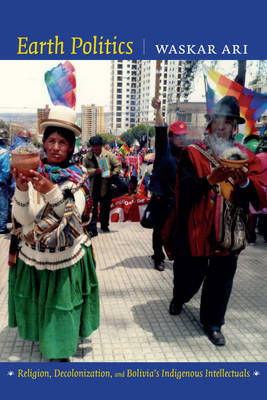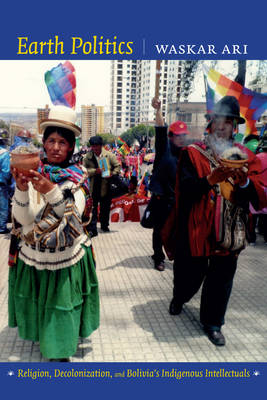
- Afhalen na 1 uur in een winkel met voorraad
- Gratis thuislevering in België vanaf € 30
- Ruim aanbod met 7 miljoen producten
- Afhalen na 1 uur in een winkel met voorraad
- Gratis thuislevering in België vanaf € 30
- Ruim aanbod met 7 miljoen producten
Zoeken
€ 53,45
+ 106 punten
Uitvoering
Omschrijving
Earth Politics focuses on the lives of four indigenous activist-intellectuals in Bolivia, key leaders in the Alcaldes Mayores Particulares (AMP), a movement established to claim rights for indigenous education and reclaim indigenous lands from hacienda owners. The AMP leaders invented a discourse of decolonization, rooted in part in native religion, and used it to counter structures of internal colonialism, including the existing racial systems. Waskar Ari calls their social movement, practices, and discourse earth politics, both because the AMP emphasized the idea of the earth and the place of Indians on it, and because of the political meaning that the AMP gave to the worship of the Aymara gods. Depicting the social worlds and life work of the activists, Ari traverses Bolivia's political and social landscape from the 1920s into the early 1970s. He reveals the AMP 's extensive geographic reach, genuine grassroots quality, and vibrant regional diversity. Ari had access to the private archives of indigenous families, and he collected oral histories, speaking with men and women who knew the AMP leaders. The resulting examination of Bolivian indigenous activism is one of unparalleled nuance and depth.
Specificaties
Betrokkenen
- Auteur(s):
- Uitgeverij:
Inhoud
- Aantal bladzijden:
- 280
- Taal:
- Engels
- Reeks:
Eigenschappen
- Productcode (EAN):
- 9780822356172
- Verschijningsdatum:
- 28/02/2014
- Uitvoering:
- Paperback
- Formaat:
- Trade paperback (VS)
- Afmetingen:
- 152 mm x 229 mm
- Gewicht:
- 385 g

Alleen bij Standaard Boekhandel
+ 106 punten op je klantenkaart van Standaard Boekhandel
Beoordelingen
We publiceren alleen reviews die voldoen aan de voorwaarden voor reviews. Bekijk onze voorwaarden voor reviews.








